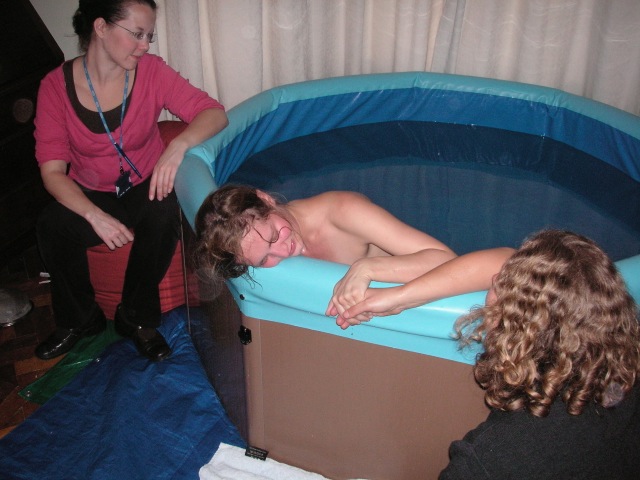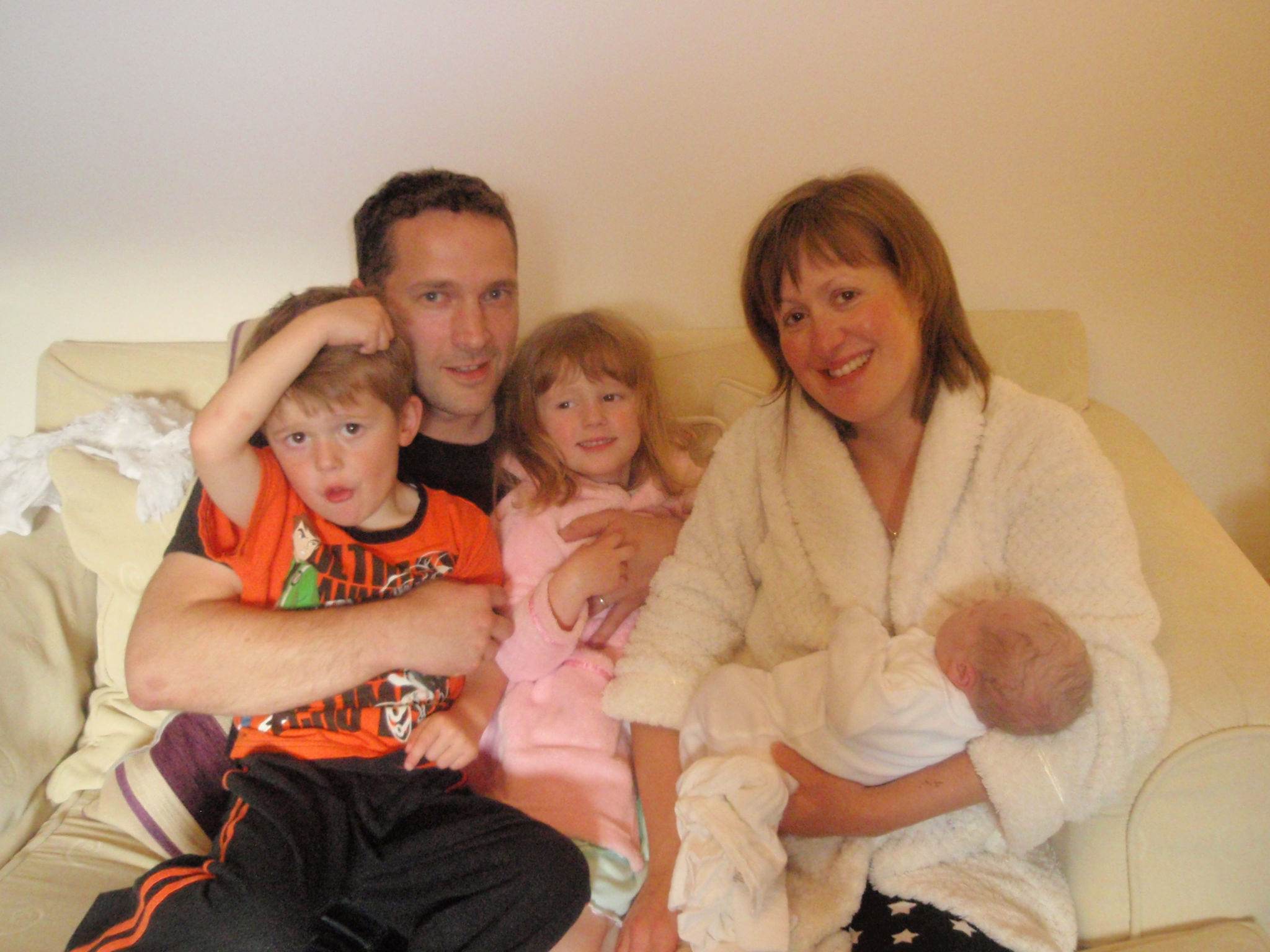Is change is on the way? Place of birth
/The National Maternity Review Team in England are working hard to gather evidence, opinion and visionary ideas for the future of maternity services. I have been invited to participate in two separate meetings, but am sadly unable to attend due to pre-booked holidays. I have lots to offer.
My action when participating in #MatExp #FlamingJune activity was to gather views of maternity services from willing individuals, by inviting them to write a post for my blog. Whilst it's now July, I am continuing with the action as contributions keep coming! Please do get in touch if you want to have your say. I will send the link for the posts to the Team in good time.
So here is post 7. Natalie Meddings, mother, doula and active birth teacher, has a revelation. You can read about it below.
Natalie:
Something astonishing has happened. Something that has caught me by surprise. A couple of weeks ago, while doing our usual how-are-you ? go-round in my Active Birth Class, it hit me that more than half of the women in attendance were planning to have their babies at home. For the first time in the seven-year life of my yoga class, the MAJORITY were planning a homebirth.
It’s a microsample, it’s true. But 60% is 60%, especially when year in, year out, it’s been more like ten - one sole mother, keeping quiet in the corner in case her unconventional choice got challenged over tea.
Photo: Hannah
Last week there was no self-silencing though. Neither was there any noticeable announcement. Quite the opposite, which is why I almost missed it.
As one after the other, they aired their plan to book a community midwife and see how things went, there was something ordinary about it - an almost casually-arrived-at agreement that this was common-sense, the most natural thing in the world to be in the most natural place in the world to give birth.
There were no faces made by those whose preference was hospital, or gasps of ‘you’re brave’. Like many birthworkers, I’ve been spreading the female idea for years - why a safe and familiar space gives the female body full physiological chance of a straightforward labour . And suddenly here we were. Here we are, with that message starting to mean something.
To be fair, I think the ‘normal’ part of it had been helped by the group’s avoidance of the word homebirth. Instead we’ve focussed on the all-options-open aspect to booking a community midwife - the in-built safety and control of having someone visit you in labour at home so that you can decide how you feel and what you want to do on the day.
Free of the homebirth heading, the idea was less loaded, less of a leap and as a result, an idea they could envisage. Without a big, fixed plan, the women could more easily imagine themselves in such a situation, as well as the immersive benefits that setting offered biologically - deep privacy and quiet.
But there was something else behind this new turn too. These women had heard lots of positive birth stories.
As recently even as three years ago, that wasn’t the case. A mother with a good birth story to share usually felt unable to. Pejoratively pigeonholed by the media as a ‘type’; silenced in NCT groups for fear she’d be crowing. What could she to do but stay quiet? Meaning that the stories pregnant women got to hear were overwhelmingly worrying ones - traumatic tales of long labours and apparently inevitable medical rescue.
But the word-of-mouth miracle that is social media has changed that. Instead of negative birth experiences installing fear and that fear going on to inform more negative experiences, the cycle is reversing. Women are now hearing lots of positive birth experiences, getting inspired and encouraged, and going on to have positive experiences too.
Support networks like my own tellmeagoodbirthstory.com and Milli Hill’s Positive Birth Movement saw the super-powerful resource women could be for other women - and created an outlet for it.
Tellmeagoodbirthstory connects pregnant women with women who’ve had positive birth experiences by email; the now countless Positive Birth Groups around the country are a place where pregnant women can hear stories and share wisdom first hand. And from our kitchen tables, we keep the fire burning beneath it all with a busy and very buzzy presence on facebook and twitter.
‘I think about my birth every day of my life.’
‘At home, I understood what I had to do and the part I had to play – which was to let my body get on with it. It was much easier doing that at home, where I didn’t have to make any decisions to make or to think about anything else at all.’
‘In labour, there’s more rest than work – no one ever tells you that.’
These are the kind of comments women are hearing now – on their feeds, at groups, by connecting – so that it’s not so much the choosing to homebirth that’s significant, but the increase in confidence. Those women in my class being calm and in command of their experience.
Louise saying: ‘I want to be able to listen to my body without distraction, to allow it do what it instinctively knows how to do.’
Claire saying: ‘When I first found out I was pregnant a home birth was the last option on my mind. But having heard from other mums about labour, I’ve realised it’s being in the comfort of my own home, in my personal space that’s going to help me relax and let go.’
A few years ago, I questioned Mavis Kirkham, professor of midwifery at Sheffield Hallam University about the relationship between mothers and the maternity service.
‘The organisation of maternity services encourages women to take the attitude towards labour and birth that they would have towards a plane journey,’ she said.
‘Just as we buckle ourselves in and hope for the best on a flight, women are encouraged to do the same in labour. We feel there is nothing we can do to influence holding the plane up in the sky and so we switch off completely. Birth is a bit the same. Women can feel there is little they can do to affect the unfolding of the labour, that it is out of their hands, so they give responsibility to the pilot and trust they’ll get them to where they are going.’
But uninvolvement is on the wane. Women are starting to take charge, realising they can affect how their labour unfolds – and by listening to and learning from others, working out ways in which they can do that.
Self-assurance is growing from the ground up – and what the Maternity Services Review might consider are ways to foster that.
When tellmeagoodbirthstory first began, one hospital got in touch, interested in the difference a free mother-matching network might make to their birth outcomes. But they quickly grew hesitant when they realised they had no control over the information women were sharing. My local GP surgery was the same. When we asked to put up posters, the practice manager said: ‘how can we know what they are saying to each other?’
Though a degree of caution is understandable in a litigious society, paternalism like this misses a trick. By trusting women, you engage women - they take part in and responsibility for their birth experience, and this in itself is a way to increase safety.
Mavis Kirham may have highlighted how disengaged the pregnant population has been in recent decades, but she is also the first to stress how easily reversible that is – through mother-to-mother education. Through community.
In particular, she has pointed to an estate in the north of England where a homebirth project was piloted. At first it was slow to take. But it only took a few mothers telling their neighbours what having a baby at home was like – and minds quickly opened. In no time, everyone was wanting one.
I think there’s a similar knock-on happening now. Slower to spread perhaps, but a chain of confidence nevertheless and this time the community is country-wide.
Natalie Meddings
Natalie Meddings is mother to Constance, 13, Pearl, 11 and Walter 9 and lives in London. Natalie trained as a doula with Michel Odent and Liliana Lammers in 2003 and has been supporting women in birth ever since. Natalie became an Active Birth yoga teacher around the same time and have been running classes in Barnes, South-West London since 2008. Natalie set up 'Tell Me a Good Birth Story' a few years ago and ran it voluntarily with the help of hundreds of lovely, amazingly generous mums nationwide.
Thank you so much for this post Natalie! I refer lots of women and families to your site, and frequently mention you at conferences. You are an inspiration - Sheena
You can follow Natalie on Twitter



